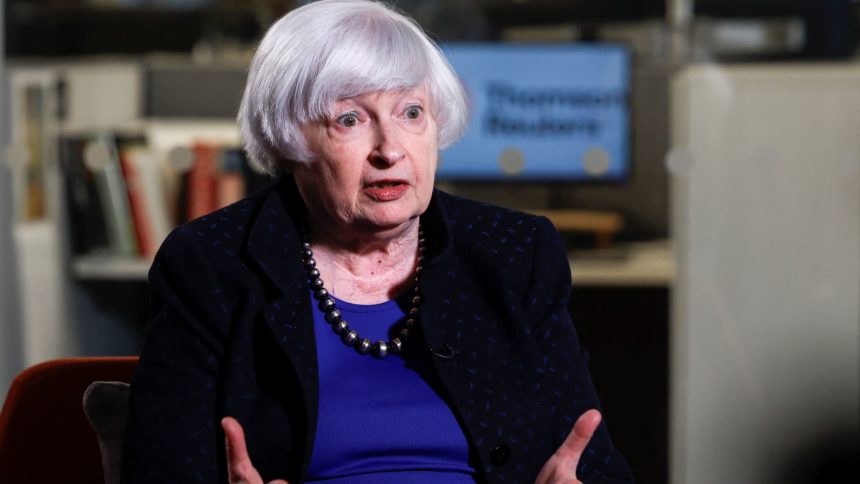U.S. Treasury Secretary Janet Yellen said on Friday that she does not see “any showstoppers” in her discussions with fellow G7 finance ministers about a larger loan to Ukraine backed by the income of frozen Russian sovereign assets.
Yellen told Reuters in an interview on the sidelines of a G7 finance leaders meeting that not all of the technical details of the loan proposal need to be worked out this weekend.
“I think things look pretty good,” for agreeing on the concept of the loan, Yellen said after several bilateral meetings on the first day of the two-day finance summit in the northern Italian resort town of Stresa.
“I’ve not seen anything I regard as a show stopper, but there are some issues that we need to be sorted out and people will have to be flexible to reach common ground,” Yellen said.
The U.S. Treasury chief has been pushing her counterparts in the talks to agree to pull forward the earnings on some $300 billion in Russian sovereign assets to back a larger loan for Ukraine.
But it has become clear that no firm details of the loan will emerge from the Stresa talks.
“I’m pretty hopeful we can essentially agree that this is a concept we can work out somewhat more over the next couple of weeks and present to the leaders for their consideration in June.”
G7 leaders are due to meet next month in Puglia, southern Italy. The group of industrial democracies includes the U.S., Japan, Germany, France, Britain and Italy.
Yellen also told Reuters that there are a “range of views” among G7 finance ministers on the level of concern about China’s industrial overcapacity, which she argues threatens the viability of firms in market-driven economies.
On the G7 meeting’s first day , some ministers expressed concerns about a potential trade war in the wake of new U.S. tariffs on Chinese goods, but the finance ministers of Germany, France and hosts Italy said a common front was needed against China’s growing export strength.
“I think there is a general view that we should express a common set of concerns to China,” she said. “It’s that China’s overall macroeconomic strategy is worrisome and has negative spillovers.”
Read the full article here




